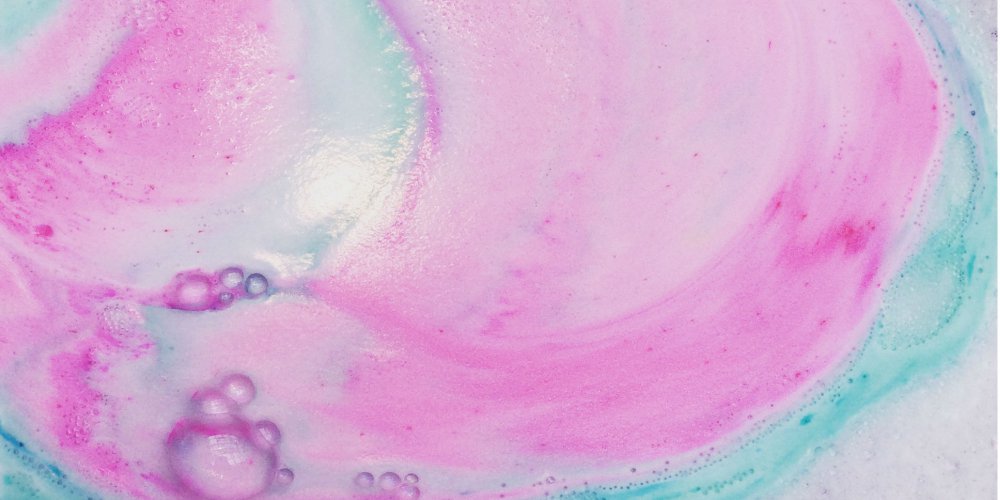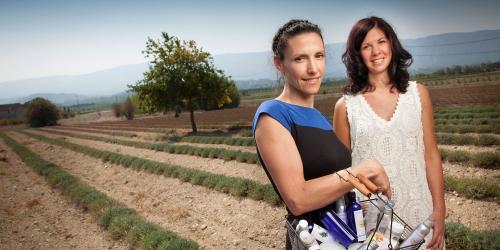For most people, Lush is above all unusual boutiques that are spotted with their large blocks of soaps, multicolored bath balls and above all, with heady scents that perfume well beyond the storefronts.
But behind the fun showcase, these are altruistic values and a strict ethic that the brand wants to respect for more than twenty years.
Back on a success made in UK.
Lush, a vegan brand (well) before time!
When Mo and Mark Constantine, Rowena Bird, Helen Ambrosen, Liz Bennet and Paul Greeves create Lush in 1995, they are unwilling to offer yet another brand of beauty products and reap the rewards.
Their goal is greater, more benevolent, more noble no doubt, precursor for sure: they wish to develop "cosmic ethics", which can embody their values and serve their ideologies, while guaranteeing their customers efficient and enjoyable products use.
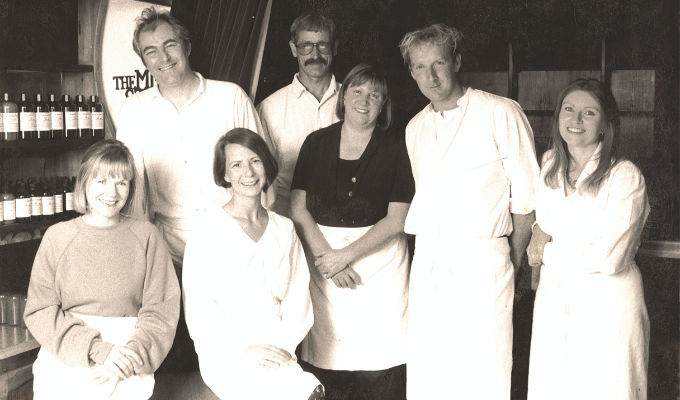 Photo credit: Lush
Photo credit: Lush
Their first shop is located at 29 High Street in Poole, in the Dorset area of the United Kingdom. They offer handmade products made from fresh ingredients (fruits, vegetables, flowers, essential oils).
100% vegetarian (and 85% vegan), the brand is a UFO when these practices were not yet "trendy". A recipe that makes a fly and has not since taken a wrinkle.
A Charity Engagement
"Inventing, manufacturing and selling cosmetics brings you to many other areas that make you think about the kind of world you want and the type of business you want to be," says Hilary Jones, Lush Ethic Director.
Invested by a mission, "to create change in this world", and anxious to do good around them, the founders use their success to fuel their fights.
Thus, they engage in controversial issues for all, regardless of gender, gender or sexual orientation. The brand is regularly involved in the LGBT cause and violence against women is also at the heart of their concerns, as it supports associations that fight against FGM, domestic violence, love affairs and violence on migration routes.
Men and Animals
But what would men be without their faithful companions on all fours? A staunch defender of the animal cause, Lush frequently launches actions as part of a global campaign called "Fighting Animal Testing". As evidenced by the shocking action she carried out in April 2012 with the Humane Society International: in a shop window at the Regent Street shop in London, activists duplicated false laboratory tests on a human to denounce this cruel practice .
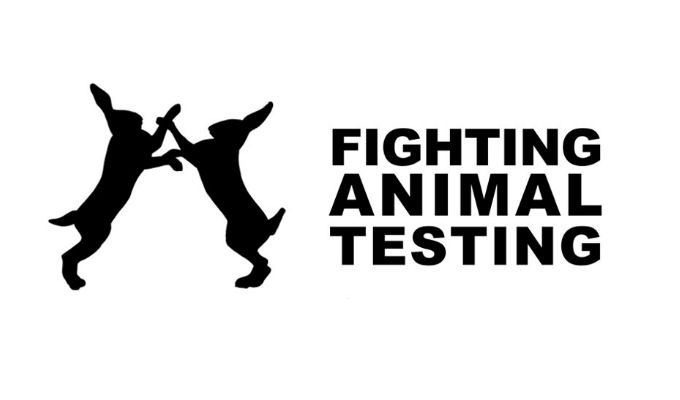 Photo credit: Lush
Photo credit: Lush
At Lush, no finished product or ingredient is tested on animals and the brand scrupulously ensures that its subcontractors do the same.
To give more weight to this commitment, it also launched in 2012 the Lush Prize, in partnership with the association Ethical Consumer Research. This global fund, valued at € 292,000, supports scientists and activists every year who are working to end animal tests by proposing alternative methods, lobbying and awareness-raising activities.
Finally, as a logical continuation, Lush also works for the preservation of the planet and its resources.
Many raw materials from countries around the world, Lush uses them responsibly, respecting the biodiversity of ecosystems. It tries to minimize the environmental impact of its production chain to its packaging through distribution in boutiques. In this effort, 35% of the products are sold without packaging and many of them are "solid". Customers can also return empty pots for recycling.
The Charity Pot, a pot of generous cream
This exclusive product, of which 100% of sales (without VAT) are donated to an association, supports the three fights Lush holds dear.
"They are small associations of citizens independent of the state. Passionate people who work in the field and solicit us for projects with concrete actions (demonstrations, direct actions, advocacy ...), "explains Lauraine Lenoir, responsible for ethics within the brand. One way to help them and bring them to light.
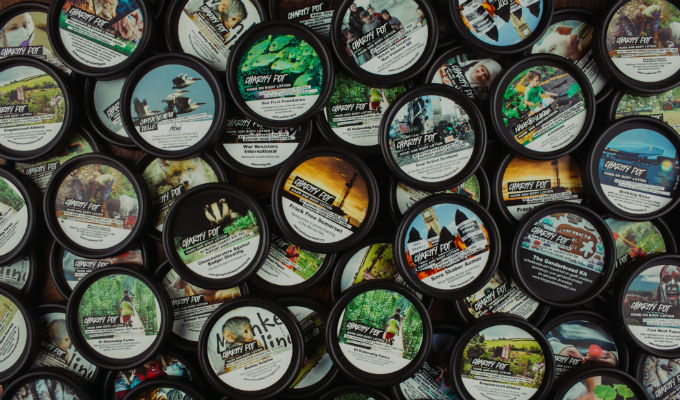
Photo credit: Lush
In 2017, the Charity Pot celebrated its tenth anniversary. Sold in 36 countries, it has already raised more than 24 million euros and made more than 5,500 donations to associations.
Products (almost) fresh but not 100% natural and organic
Pleased for its "fresh" products (masks, soaps, shower gels ...), the brand is however neither organic nor 100% green. Although limited in quantity, it recognizes the use of synthetic ingredients in its formulations, including methylparaben and propylparaben, for conservation purposes. To recognize them, just take a look at the packaging: the green color indicates the natural ingredients and the synthetics in black.
His next challenge? Without these components, self-preservation, which already concerns 62% of the references, prefers natural preservatives such as mango butter, clays or honey to avoid the appearance of bacteria.
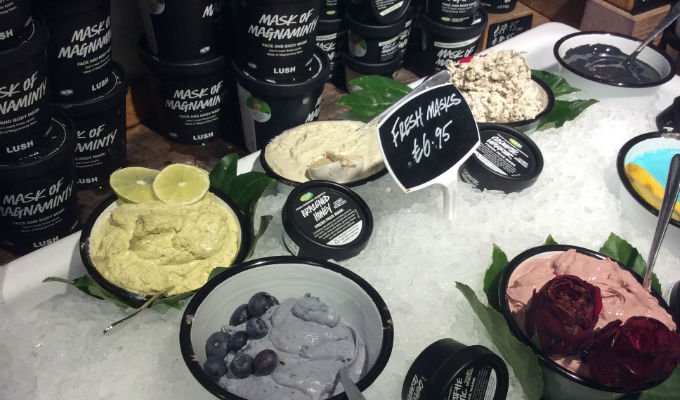 Photo credit: Aurélie Sogny
Photo credit: Aurélie Sogny
Playful cosmetics
Among all the products offered in stores, the bath bomb , invented by Mo Constantine, is undoubtedly the best known and most popular.
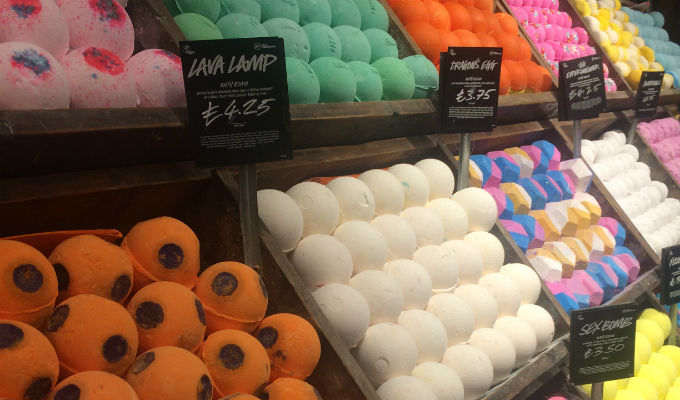 Photo credit: Aurélie Sogny
Photo credit: Aurélie Sogny
A mixture of bicarbonate of soda, citric acid and essential oils, these spheres of all colors, which sometimes contain petals of flowers, begin to melt and sparkle once immersed in water.
"We want to manufacture products that meet our customers' daily needs but can also delight and entertain," says Hilary Jones.
Other iconic products include solid shampoos, solid toothpaste called "ethifrice", and "Fun" *, a 4 in 1 that can also be used as shampoo, bubble, soap, and so on. modeling clay!
* For every product purchased, € 0.10 is donated to FunD, a charitable fund to support children affected by the tsunami and the Fukushima nuclear disaster.
